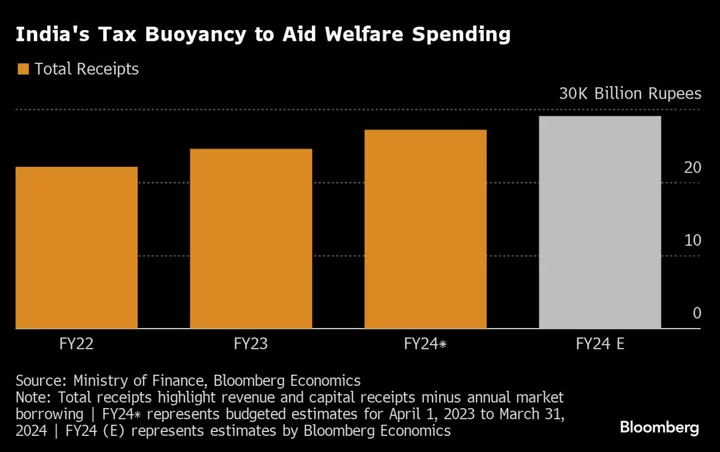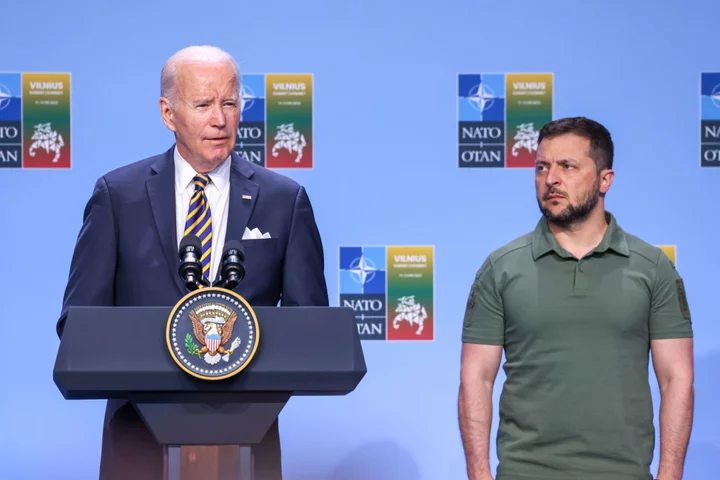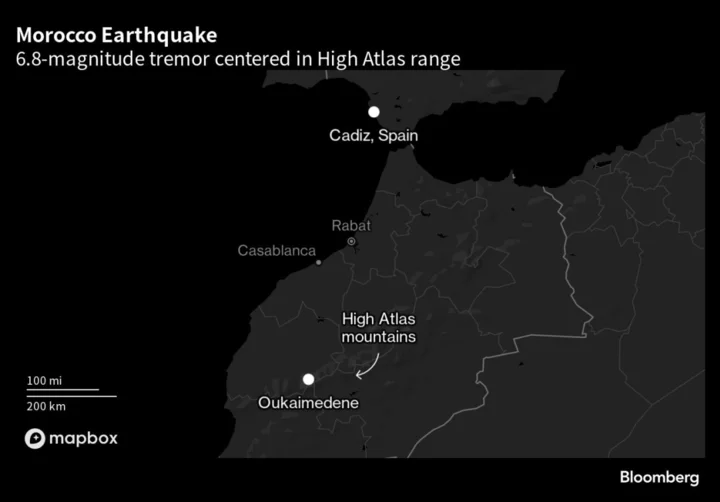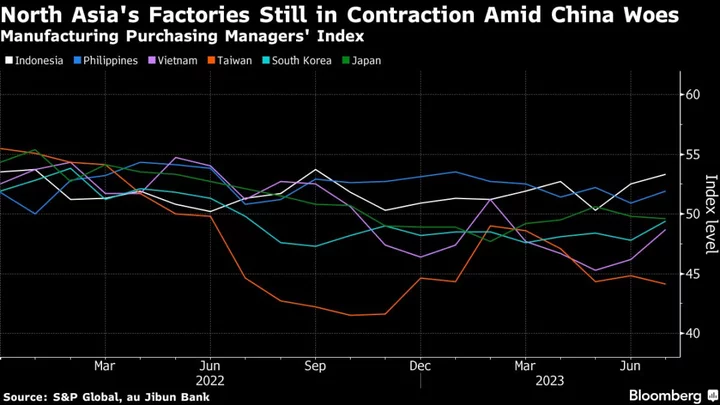Sign up for the India Edition newsletter by Menaka Doshi – an insider's guide to the emerging economic powerhouse, and the billionaires and businesses behind its rise, delivered weekly.
India’s government is likely to exceed its tax revenue projections this year, giving Prime Minister Narendra Modi more fiscal room to spend on wooing rural voters ahead of elections.
Bloomberg Economics estimates the central government’s total receipts will be about 1.9 trillion rupees ($22.8 billion) above the budgeted amount in the current fiscal year than ends in March 2024. That’s equivalent to 0.6% of gross domestic product.
Standard Chartered Plc. forecasts revenue will exceed the budgeted figures by 0.2%-0.3% of GDP.
The revenue windfall gives Modi’s government more firepower for a populist push as voters in five states take to the polls this month and the nation gears up for general elections in 2024. On Nov. 4, the prime minister told a public rally he’ll extend a popular free food program — which provides 5 kilograms of wheat or rice every month to 800 million Indians — for another five years.
The government has also increased cooking gas and fertilizer subsidies, and is considering other support measures for poor households, such as increased cash handouts to small farmers and subsidizing some home loans.
Tax collection has been stronger than expected this year as the economy expands, and the central bank has transferred more of its profits to the government, boosting public coffers. India’s direct tax collection from April 1 through Oct. 9 was 18% higher than a year ago, the Ministry of Finance said in a statement last month.
“We think most of the excess will be channeled into welfare spending, mainly in rural regions,” Bloomberg Economics’ Abhishek Gupta wrote in a note Wednesday. He estimates the government’s recently announced spending measures will amount to about 900 billion rupees, leaving it with additional headroom of 1 trillion rupees to spend on other initiatives.
The increased fiscal space means the government can boost spending measures without damaging its budget deficit target of 5.9% of GDP for the current fiscal year.
A finance ministry official said this week that the extension of the free food program announced by Modi won’t have any impact on the deficit in the current and next fiscal year. Nomura Holdings Inc. said in a report on Nov. 6 that the near-term economic implications of the initiative “should be muted” although there are medium-term risks.
Standard Chartered estimates the fiscal measures already announced and being planned are unlikely to exceed 0.3% of GDP, which means the government is on track to achieve its fiscal deficit target for the year.
“We believe better targeting of subsidies has created space to either fully or partially absorb higher expenditure,” the bank’s economists led by Anubhuti Sahay wrote in a note.









